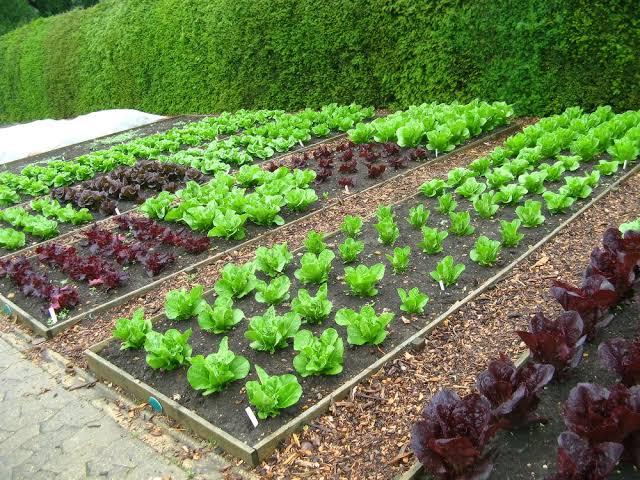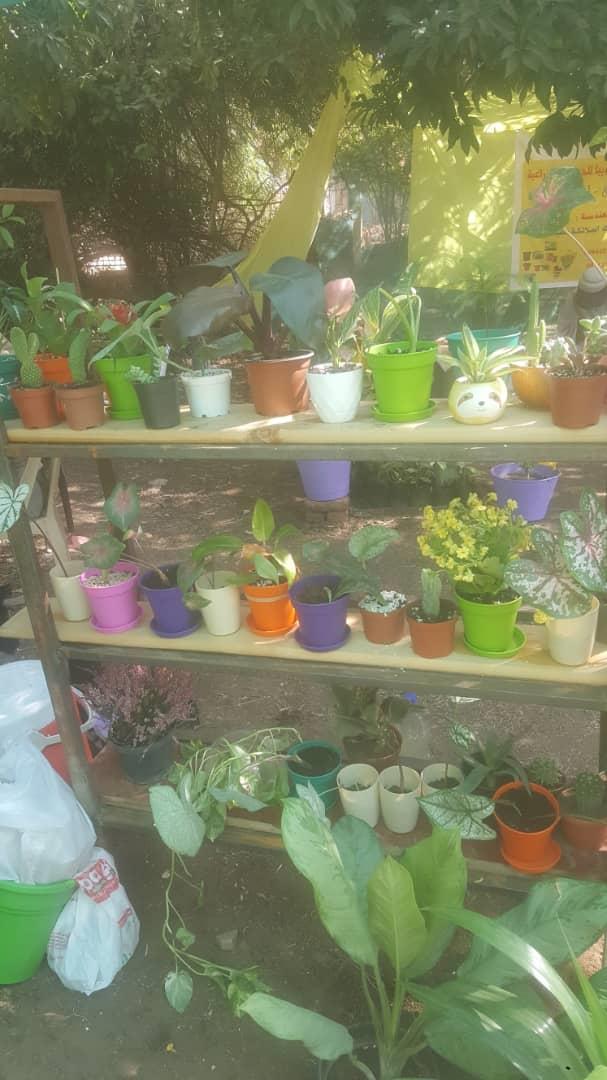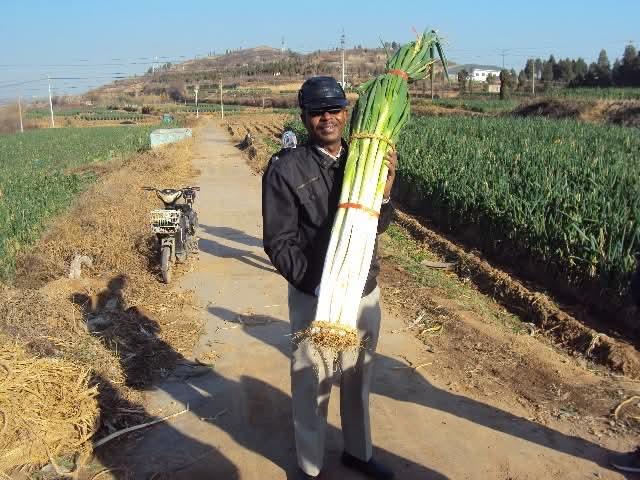
Home Gardening: Sudan's Gateway To Self-Sufficiency
Port Sudan (Sudanow)- In one of the streets of Omdurman, a group of youth planted the neighborhood square with vegetables. The production was abundant and contributed to feeding the people of the neighborhood and supporting the (Takaya) during the war.
Another experience was attributed to a woman living in a Khartoum neighborhood. She used the empty house neighboring her home , which people used as a garbage dumping area: she first removed the garbage and cleaned and planted it vegetables. The proprietor of the house liked the outcome and he even offered her his land to use free of any charge.
These are two cases, and one would wonder how many empty squares and areas are there near our homes and inside our towns and villages??!!!
To examine the vital importance of home Gardening in the Sudanese community, Sudanow interviewed Engineer Ammar Hassan Bashir Abdullah who leads the Food Security Administration - Federal Ministry of Agriculture, and the Founder of the Sudan Food Security Network to shade more light about the issue.
Home Gardening is primarily meant to secure basic food needs for the family living in their homes and are working to use empty spaces as small farms or what is known in Sudanese colloquial Arabic as“Jabareek” to secure food for the residents and self-sufficiency or help in alleviating the burdens of living, by marketing the surplus of it, including vegetables and fruits.
But these same areas when cultivated play a major role in providing most of the family's requirements, especially if the practice is tuned into agro-farming (plant and animal production). This is based on the fact that many Sudanese families especially in rural areas raise animals, poultry and birds to secure milk and meat.

Many families are relying on Home Gardening and have advanced and developed the practice to the extent that they no longer need to go to the market to buy the majority of their needs. They could now produce their subsistence need within the wall of their houses.
Engineer Ammar says that there are other elements and outcome that stress the importance of home Gardening, which is encouraging children and every amateur within the family to enhance their skill of agricultural work and contribute in enhancing production. The simple planting of a seed in a plot of Land or raising animals and birds to encourage people practice agricultural work aimed at self-sufficiency. As a byproduct it helps people reduce unemployment and practice a hobby useful for the whole community.
He argued that home gardening does not require much effort or large spaces as it can be practiced on the roofs of houses and inside residential apartments and balconies and there are models that do not use large spaces but their production is large enough for the family's needs.
He argued that in light of the current war if families were able to practice home gardening it would save them a lot and would limit displacement from one place to another in search for food. People become more vulnerable the more they increase their movements. He added that if every citizen was able to plant a small piece of land inside his house or apartment he would produce and be satisfied and find benefit.

The engineer Ammar mentions that there are many successful experiences and models in this field. He cited the case of the Food and Development Forum, which began before the war in the north of Khartoum Bahri, in which the forum showed as a model the effort led by Professor Elias Abdel Rahman. It was an excellent model in encouraging families to produce and how the family extracts its food and daily sustenance from inside its home.
When the war broke Elias Abdel Rahman moved his successful experience to the cities of Shendi and Omdurman. Another experience by Dr. Ibrahim Osman's group, which is one of the groups that work to encourage families to practice home Gardening by testing their lands and producing from their lands and planting to provide some of their requirements. It is one of the good family practices that render families producers, especially if the activity is dual, plant production and animal husbandry.
Successful experiences and models of home gardening at the individual level.
Sudanow met agricultural engineer Malatef Manjed, who told of her experience in home gardening, which began at a young age in the primary stage when the family lived in the Jubail Industrial City in the Kingdom of Saudi Arabia. She was encouraged to do so by the presence of home gardens in the residence to satisfy her desire to practice home agriculture with the help of her mother, who also loves gardening, with the participation of one of the women of the neighborhood by following agricultural exhibitions and bringing varieties of seedlings.
Upon their return to Sudan, she continued with the same enthusiasm and was able to transfer the experience to the women within the larger family. Engineer Malatef says that she was more inclined to plant ornamental trees than to plant vegetables and fruits.
After studying agriculture, she employed scientific method in practicing her hobby with the help of her brother in their home in the Al-Maamoura neighborhood in Khartoum.
There she planted trees, palm trees, oranges, watermelons, guava, lemons, and squids, and raising animals, birds, and ducks, it was a complete home farm with its plant and animal aspects, and in the nursery for ornamental trees, she planted purslane, potatoes, mallow, zucchini, watercress, parsley, and coriander, which grew alone among the vegetables and were beautiful with their white flowers and fragrant smell.
The outcome was pleasant to show and was admired by visitors and neighbours. They showed their admiration by sitting in the middle of the plants to enjoy the greenery that helps in moderating the atmosphere and reducing temperatures, in addition to the great gain of the family's sufficiency and providing food requirements.
Malatif says that following the outbreak of the war, the family moved to the village of Al-Hilaliya in Al-Jazeera State and left all their belonging and rich growth except for some beloved seedlings that she took to Al-Hilaliya in the hope of returning to Khartoum as soon as possible.
In Al-Hilaliya, she planted vegetables inside the house and made efforts to raise sheep and birds. It was a successful experiment that bore fruit. There were also some fruit trees inside the house. After the attack on Gezira State, the family sought refuge in Egypt and Malatif took with her one of her beloved seedlings.
The seedling suffered the hardships of asylum, as did the family from hardship and suffering until it reached Egypt, but it remained resilient in the face of the cold weather and the lack of sunshine. Even in exile, Malatif did not forget her eternal love.
In May of last year, Malatif participated in the flower exhibition in Dokki, where she found unparalleled cooperation, high-class treatment, and support from the her Egyptian brothers, and a promise to provide aid and assistance. This was a source for entertaining new relationship in exile.
She was hoping that this friendship and cooperation would, upon returning home, be the source of fresh experiences to be applied to expand home gardening and work on small farms.
Another experience of home gardening, is that of a displaced person who practiced agriculture after following the outbreak of the war
Sudanow met Hajj Jaafar Muhammad Mustafa, who was displaced from the city of Omdurman to the River Nile State after leaving everything he owned in Omdurman and arrived to his village without having enough food for himself and his family, so he planted vegetables inside a large family yard and attached it to a number of sheep and a chicken coop and another for pigeons. After only three months, Hajj Jaafar became a producer who met the family's demands from inside their village house. After two years, Hajj Jaafar became the most famous seller of vegetables, eggs and milk in the village. He even extended to supplying the village butcher shop with its needs of vegetables and giving charity to needy families from the displaced and even the resident villagers, and he became self-sufficient.
Finally, home gardening is an opportunity to express the authentic values of Sudanese society in achieving social cohesion because farming is originally a social value.
Owners of large and small homes must move towards producing their food at home through farming and raising animals. Home gardening instills responsibility and a love of work in children by taking care of seedlings and instilling patience in them as they wait for a leaf to blossom and not blossom or produce fruit before their eyes and care.
The same applies to housewives by establishing home gardening. Home production free of fertilizers is a safety valve and helps to cut the bill for many treatments by providing safe organic foods.

Legal Disclaimer:
MENAFN provides the
information “as is” without warranty of any kind. We do not accept
any responsibility or liability for the accuracy, content, images,
videos, licenses, completeness, legality, or reliability of the information
contained in this article. If you have any complaints or copyright
issues related to this article, kindly contact the provider above.






















Comments
No comment